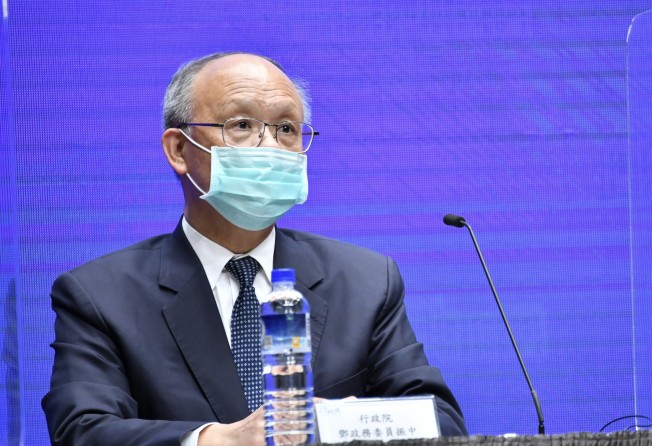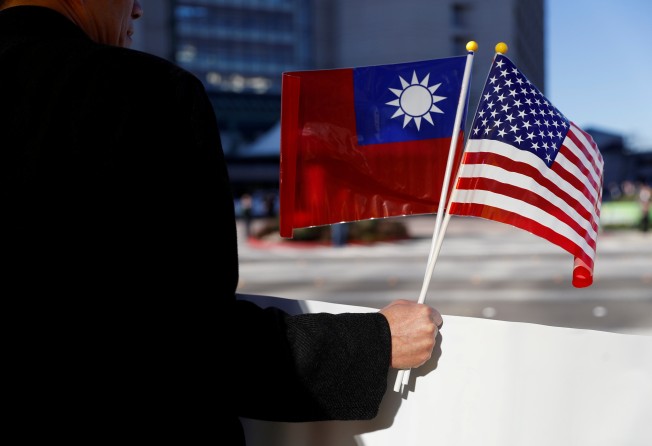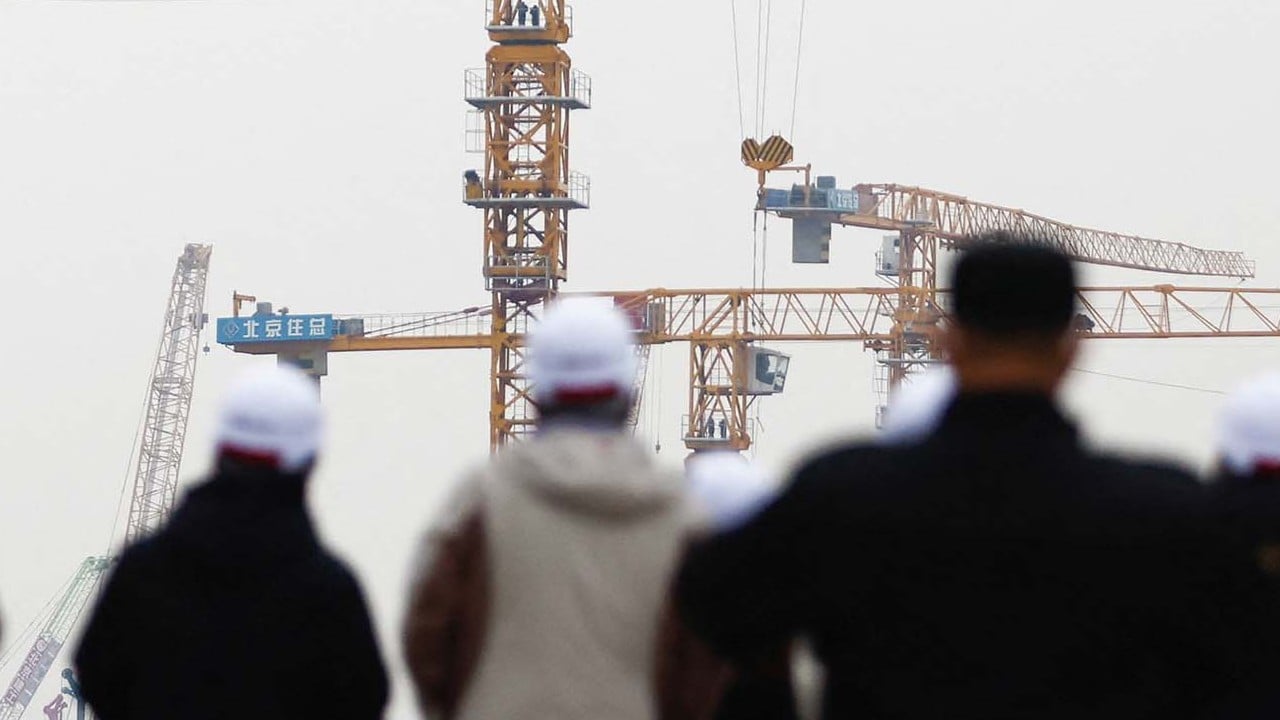
Beijing ‘should be wary’ as US, Taiwan seek closer economic ties
- As four days of trade talks wrap up, analysts say mainland China may need to choose between carrot and stick in response
- ‘US will pressure Taiwan’ not to work closely with Beijing and reducing reliance will be part of agreements, according to observer

Beijing should be cautious about growing economic ties between Taipei and Washington, and may need to choose between carrot and stick in response, according to mainland Chinese analysts.
The remarks come as Taiwanese and US officials wrapped up four days of trade talks in Taipei on Tuesday, being held under the new US-Taiwan Initiative on 21st-Century Trade.
Both sides have indicated that they may reach agreement on issues such as trade facilitation and promotion of good regulatory practices.

Wang Jianmin, who specialises in Taiwan issues at Minnan Normal University in Fujian province, said the negotiations were an important part of efforts from both sides to reduce economic reliance on Beijing.
“The core of the initiative is to counter the mainland and establish a US-Taiwan economic cooperation system, and to include Taiwan in the US supply and industrial systems,” Wang said.
Taiwan’s top trade negotiator John Deng told reporters at the start of the talks on Saturday that the island was hopeful of achieving positive results in four key areas – trade facilitation, the promotion of small and medium-sized enterprises, good regulatory practices, and anti-corruption measures.
According to Wang, Beijing should be wary of closer economic links between Taiwan and the United States.
“The US will pressure Taiwan not to work [closely] with the mainland … and it is obvious that excluding the mainland and reducing [the island’s] reliance on the mainland will be part of the agreements,” he said.
The mainland is Taiwan’s largest trading partner, accounting for 25.2 per cent of total trade and 21.6 per cent of its imports in 2021. The US was Taiwan’s second-largest trading partner that year, accounting for 12.6 per cent of total trade and 10.2 per cent of Taiwan’s imports, according to US Department of Commerce figures.
Wang noted that Taiwan’s exports to the mainland fell last year. According to data from the mainland’s Taiwan Affairs Office, imports from Taiwan amounted to US$219.07 billion from January to November – down 2.9 per cent from the same period a year earlier.
“[Beijing] needs to pay close attention to the impact [of the initiative] on future economic and trade relations between the two sides of the strait,” Wang said.
He added that it was likely to drive more Taiwanese investment to the US, citing Taiwan Semiconductor Manufacturing Company as an example. The chip giant last month increased its investment in a US plant to US$40 billion.
Wang said Beijing should try to compete with Washington by boosting cross-strait cooperation, especially given that China is engaged in trade and tech wars with the US. “Cross-strait cooperation is of greater importance to us since we need [Taiwan’s] products, like hi-tech goods.”
But Tang Yonghong, a Taiwan affairs professor at Xiamen University in Fujian, was less worried about the negotiations, saying they were more focused on issues like trade facilitation and would have little impact on US-Taiwan trade or cross-strait economic ties.
But he said the negotiations could drive other countries to follow suit by seeking similar deals with Taiwan, undermining Beijing’s efforts to promote its one-China message in the international community.
Beijing sees Taiwan as part of its territory and opposes any move to sign official trade pacts with the self-ruled island. Washington does not have formal diplomatic relations with Taipei.
Tang suggested Beijing could take countermeasures including cancelling the reduced tariffs it offers on a list of Taiwanese goods under the Economic Cooperation Framework Agreement signed by the two sides in 2010.
In addition, he said mainland China could reduce imports from the island and switch to domestic and other suppliers.
